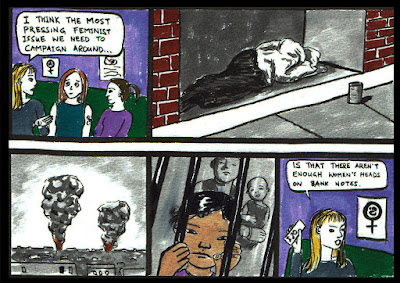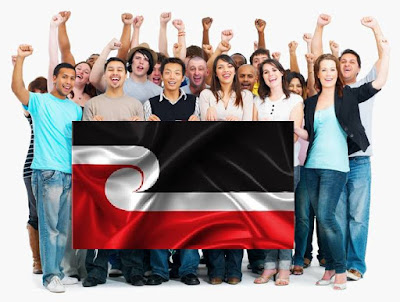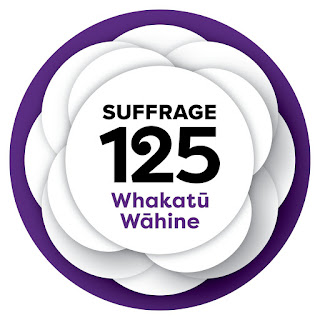Not just about inclusion: the white and liberal feminist co-option of intersectionality
In recent years, the popularisation and semi-mainstreaming of the concept of “intersectionality” in Aotearoa feminist movements has given opportunities for different conversations and voices. However, I’ve also been noticing a dangerous tendency of throwing the term “intersectional feminist” and “intersectional feminism” around without much substance. Some of these "intersectional" feminists don't even acknowledge of the roots of the concept as originating from black feminist struggles or as coming from an analysis of violence against women of colour (see Kimberle Crenshaw’s work).
I’ve seen white feminists talk about intersectionality the way they talk about diversity, paying lip service, but no real consideration of the way they relate and operate with women of colour. I’ve seen it be a lumping together of all marginalised Others who might actually have quite different issues.
I’ve seen intersectionality co-opted by liberal feminists of colour who use it for their own career advancement without any critical analysis of the systemic roots of oppression. The capitalist narratives of “You can be a CEO too” (and get rich off the backs of workers). “You can also reach success under capitalism if you work hard enough” (or if you come from a privileged middle-upper class background). You know, the lean-in style of being “successful” by prevailing capitalist definitions of gaining higher status/power or greater wealth than others.
These narratives that support our current economic system does nothing for majority of women of colour around the world who are exploited for their labour or for the single mothers (majority non-Pākehā) still having their benefits sanctioned if they refuse to name their children’s sperm donor. Yes representation and leadership are important, but individual “success” does not mean collective success. We need to be able to distinguish between those types of “leaders” who are neoliberal climbers whose goal is to get to the top for themselves and those who are leaders working to uplift their community and involved in doing all the grunt work to make some serious changes.
I rarely see these liberal “intersectional feminists” work on issues of colonisation, or talk about collective liberation, or the fact that capitalism is a fundamentally oppressive economic system thrives off all sorts of inequalities (not to mention built from mass femicide through the witch hunts in Europe - see Silvia Federici’s work, Caliban and the Witch).
I see the tokenistic gestures to involve women of colour, but I do not see power-sharing or any meaningful redistribution of resources to those who are multiply marginalised and disempowered.
For example, when pay equity discussions brought up by white "intersectional" feminists, the focus is only on gender - very rarely on race/ethnicity. On average Pākehā women earn $3-6 more than Māori, Pasifika and Asian women, and as a group earn more on average than all men of colour (source). Is there even data on the difference between cis and transwomen? If we talk about economic inequality, you cannot ignore the racialised and feminised aspects of poverty and affluence. With migrant women of colour being generally paid less than men and Pākehā women, they are more affected by the new immigration rules that has a pay threshold per hour. To qualify for the Skilled Migrant Category to stay in this country, the threshold is "$24.29 per hour or above (or the equivalent annual salary)". There is already employment discrimination against people on temporary visas and with "foreign"-sounding names so think about what this means in terms of who can and can't qualify to live in this country. Did you also know that for people with disabilities, employees can apply to have a minimum wage exemption? This means people with disabilities can legally be paid below the minimum wage. How comes this is never part of the conversation?
Intersectionality as a framework has been useful to recognise the ways that oppressions reinforce each other. It’s been important as a critique of white feminism and anti-racist movements who don’t address gender-based oppression. This analytical tool has been effective in the amplification and representation of the range of identities and voices who experience oppression. But is this enough?
Many of the ways I’ve seen white feminists use intersectional feminism as just about “inclusion” not only still centres white middle class feminism, but also entails expectations of assimilation into mainstream feminism. The ways of doing things, the practices of white feminists hasn’t really changed, just included more non-white, non-cis, non-able-bodied, and non-hetero faces. I have rarely seen it about supporting the self-determination of more marginalized groups to do their/our own thing. The goals of white “intersectional” feminism is to make themselves look more inclusive than for them to work on changing the material conditions that marginalize those not of privileged identity categories. It’s about serving their moral identity as a Good White Woman, a technique of the self that actually uses the oppression of others as aesthetics and decoration like their culturally appropriated dreadlocks, bindis and Māori tattoos. It’s to make themselves feel better, to feel cultured and “woke”.
It makes me angry that a lot of the hard work of the generation of feminists of colour are being disrespected, co-opted and misused in such a way that continues to undermine us.
The master's tools will never dismantle the master’s house, Audre Lorde said, but the tools of the oppressed have persistently been stolen to maintain and add to the structure of the master’s house. They may give a shared room in the basement to women of colour who acquiesce to their rules, but that structure hasn’t fundamentally changed.
We cannot take claims of “intersectional feminism” at face value. What I have learnt most and feel that is most useful for strategies of liberation through an intersectional analysis is not about individual identities, but how different systems of oppression work together to produce conditions of inequality. Essentially, it’s an understanding of the way power operates and how we cannot end sexism without ending racism, without ending capitalism, without ending colonialism, without ending ageism, without ending homophobia and transphobia, without ending ableism, without ending every single oppressive system of social hierarchy that requires relationships of domination and exploitation. Equality to me does not look like a woman of colour for Prime Minister or CEOs. It does not look like a gender diverse military or police force. It shouldn’t be about leveraging off all the diversity boxes you tick for individual career advancement. It looks like the abolition of all systems of violence and inequality. In Aotearoa, this means first and foremost working against settler colonialism and it’s violent imposition of patriarchy on this land.
The liberation of people experiencing the most marginalisation and structural oppression ultimately means liberation for all.
In summary:
Stop co-opting intersectionality to make yourselves look better without putting in the work.
Stop using intersectionality to just change the faces of the ruling class.
I’m keen to see people who proclaim themselves as “intersectional” feminists and advocate for intersectional feminism to have a deeper understanding of power relations when doing feminist organising. It’s a matter of building reciprocal and supportive relationships with groups who are more marginalised, working on their own people to be less oppressive instead of spending more time and energy tagging along to our events. It’s all good to come, listen, and learn but do something with that knowledge to improve the material and social conditions for people who bear the brunt of multiple forms of oppression. Share/donate your resources and wealth. Volunteer your time to support in practical ways. Stop tokenising and erasing the work of women of colour. Organise to dismantle the *structures* of oppression rather than focus on representation within it. Share power.
 |
| White feminism comic (script by Wai Ho, art by Fu Fighter Arts) |


Superb explanation & it's too clear to understand the concept as well, keep sharing admin with some updated information with right examples.Keep update more posts.
ReplyDelete3D printing companies in Chennai
3D printing service Chennai
3D printing service in Chennai
Loved reeading this thanks
ReplyDelete